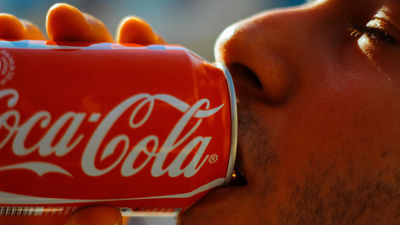Alcohol is so harmful that it should be banned immediately, so why is it still being consumed?

'Alcohol is the best medicine,' they say, but in reality, it's a well-known fact that excessive alcohol consumption is harmful to the body. YouTube channel 'Kurzgesagt,' which explains science-related topics through animation, explains why excessive alcohol consumption is bad for your health.
The alcohol contained in sake is basically produced by yeast breaking down and converting sugar.

When you drink alcohol, it is absorbed in your stomach and intestines.

The absorbed alcohol is broken down in the liver.

Alcohol also acts as a depressant on the central nervous system, specifically by increasing the effects of

Therefore, drinking alcohol makes you feel happy and at ease. You become more willing to show your emotions to others, whether it be crying or laughing, and your communication skills improve.

Many people with whom I have a wide social circle are also accustomed to drinking alcohol.

Alcohol is broken down into acetaldehyde in the liver. This acetaldehyde is a substance that is harmful to the human body. Normally, acetaldehyde is further broken down into acetic acid in the liver, but if you drink too much alcohol and the breakdown doesn't happen in time, acetaldehyde will enter the bloodstream and circulate throughout the body, damaging cells and DNA.
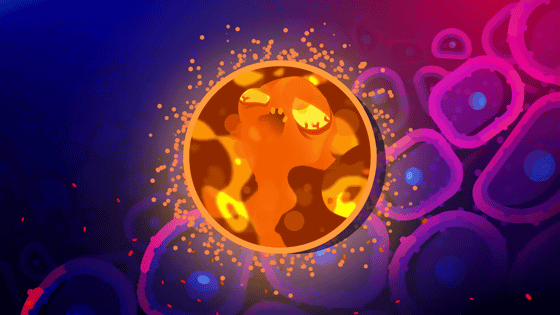
In particular, acetaldehyde damages the brain, shrinking neurons and disrupting neural pathways. This is why people are told not to drink alcohol when they're young. Kurzgesagt likens drinking alcohol when the brain is still developing to breaking cement before it hardens.
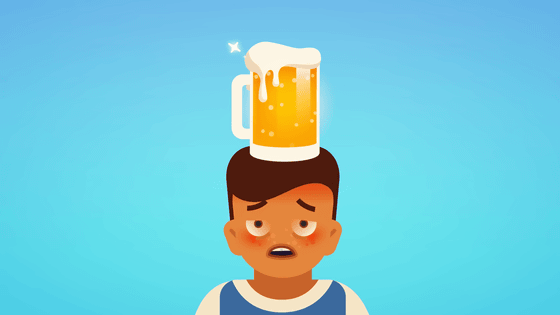
One of the most commonly cited risks of drinking alcohol is cancer.
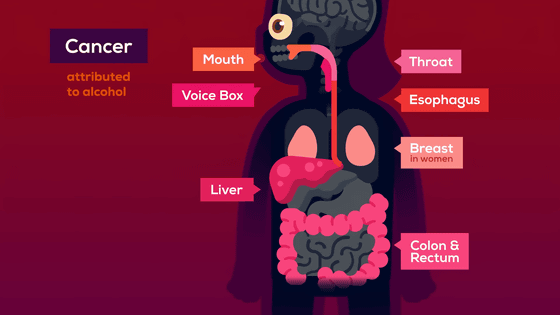
According to data from the World Health Organization (WHO), 740,000 people develop cancer caused by alcohol consumption each year.
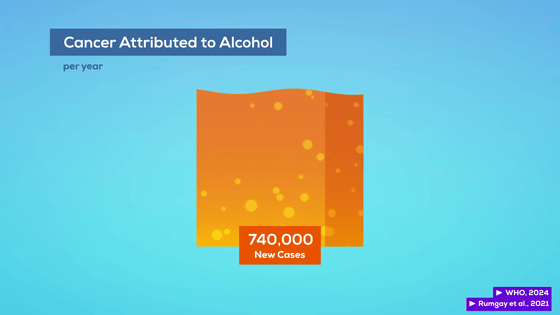
And 400,000 people die from cancer caused by alcohol every year.
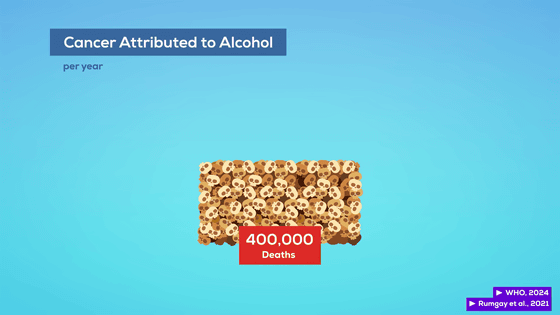
Of course, this also puts a strain on the liver, which is responsible for breaking down alcohol, and fat that would normally be broken down may accumulate, potentially leading to fatty liver.
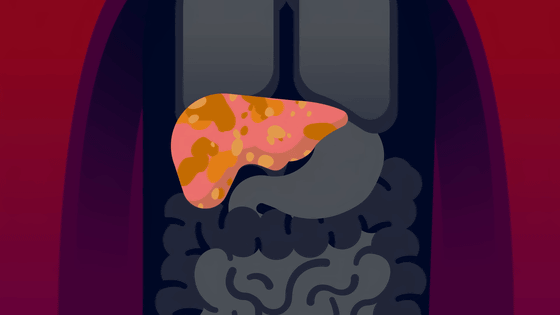
According to Kurzgesagt, the daily alcohol intake that poses a risk of health problems is around 330ml of 5% beer.
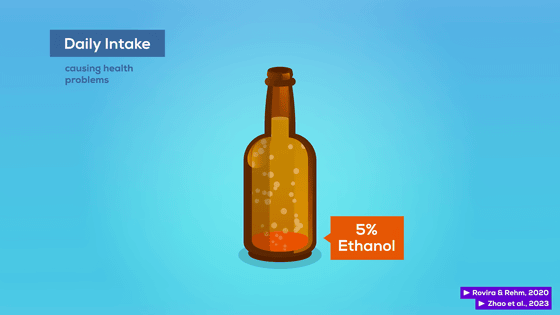
However, previous studies have shown that the average man drinks about three glasses of wine, one liter of beer, or 120ml of spirits per day.
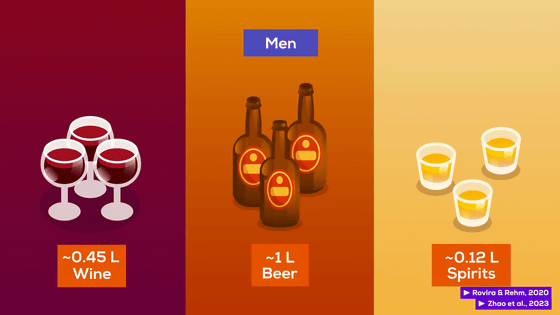
For women, this amounts to two glasses of wine, 600ml of beer, and 80ml of spirits, meaning that the average alcohol intake is at a level that puts both men and women at risk of health problems.
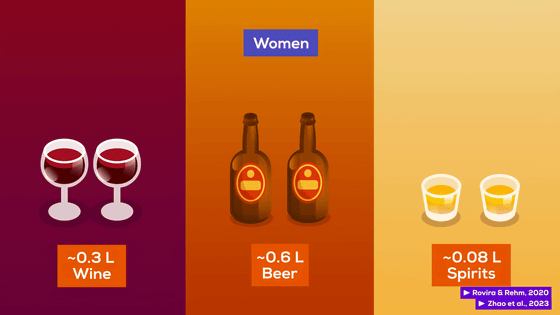
According to European data collected in 2015, around 50% of people consume alcohol daily, making it more addictive than tobacco, cocaine or cannabis.
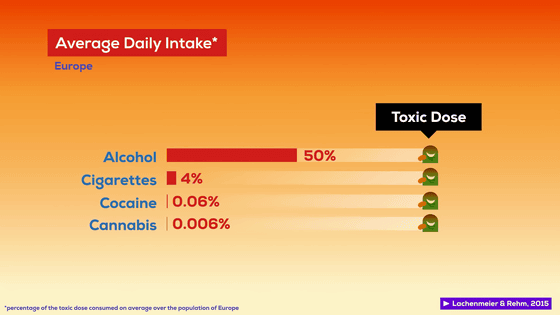
Drinking alcohol also significantly impairs your judgment, so drinking and driving is a big no-no. 150,000 people die every year as a result of drunk driving. These 150,000 people did not die because they drank alcohol, but because someone was driving under the influence.
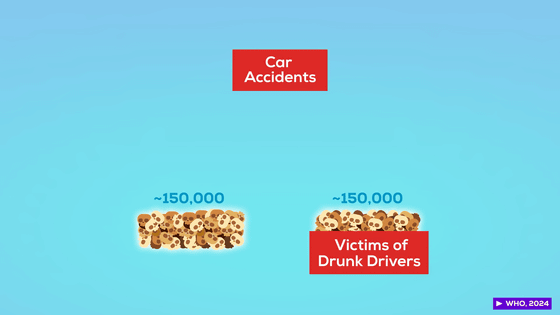
People who are dependent on alcohol often become overly aggressive, resorting to violence and verbal abuse.
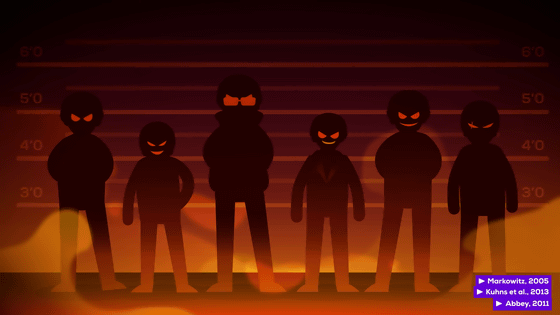
According to WHO data, 100,000 crimes are caused by alcohol every year.
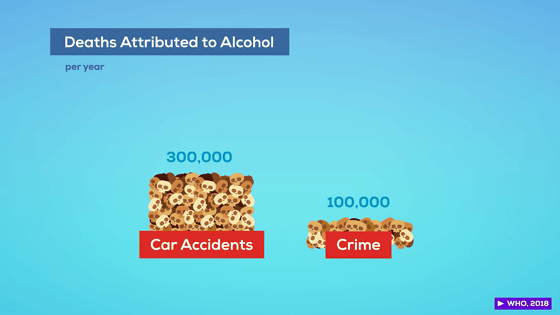
In the UK, there are 500,000 drink driving accidents each year and 800,000 assaults caused by drunk driving each year.
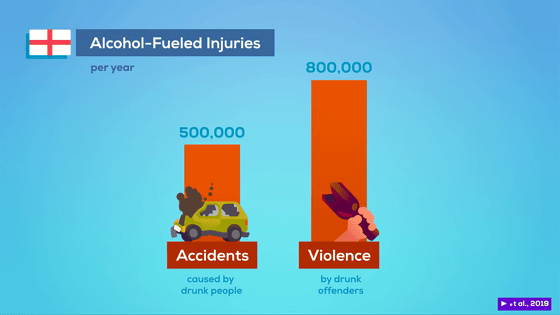
Furthermore, drinking alcohol poses health risks not only to yourself but also to your child. It has been pointed out that if a pregnant woman consumes alcohol on a daily basis, it may cause
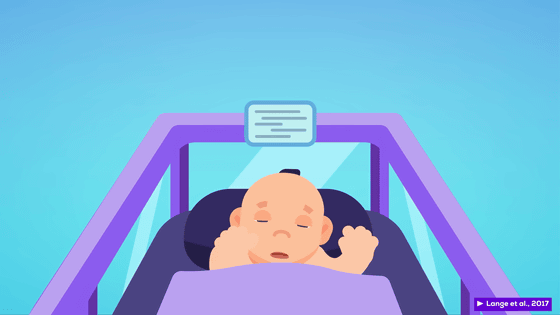
According to the WHO, one in 14 adults are alcohol dependent, and in Europe and the United States alone, one in 20 people are alcohol dependent.
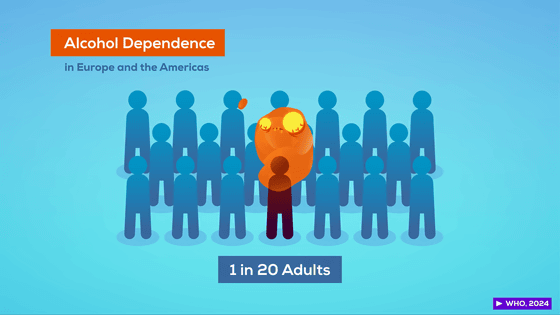
However, it is said that the number of people in Generation Z who drink alcohol has been decreasing in recent years.
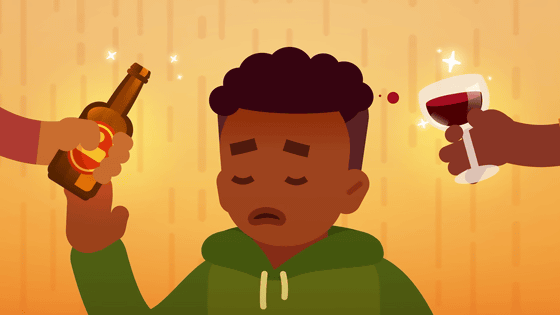
A 2019 study found that the number of 12th graders (aged 16-17) who answered 'I've ever drunk alcohol' had decreased by 25% between 1996 and 20 years ago.
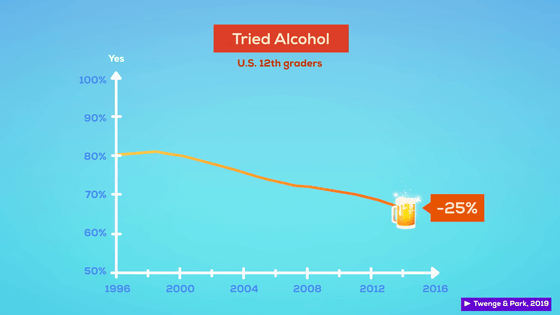
The reason behind this is said to be the weakening of connections with others among younger generations. The number of 12th graders who answered 'I meet with friends almost every day' has decreased by 48% over the past 40 years.
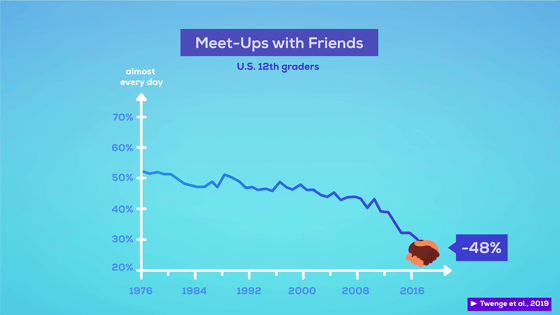
The number of 12th graders who answered 'I've dated someone of the opposite sex' has also decreased by 30% over the past 40 years. As to why this trend is occurring, the spread of COVID-19 and the development of social media have been cited as reasons, but none of these have scientific backing, and the current situation is that it is not possible to clearly explain them.
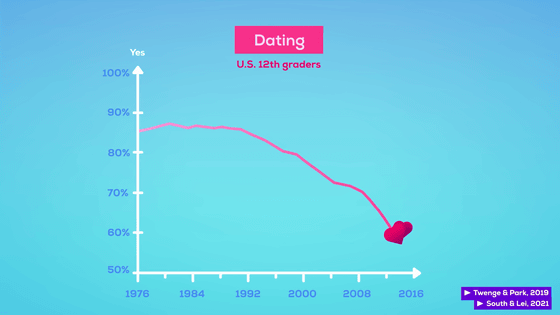
'Alcohol has been a powerful tool for sharing, celebrating and enjoying life with others for thousands of years, but humanity may be moving away from it and on a new path,' Kurzgesagt said.
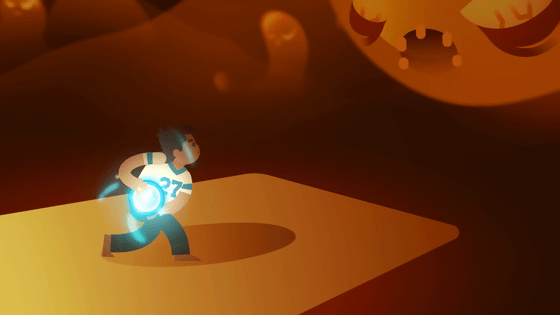
Related Posts:

